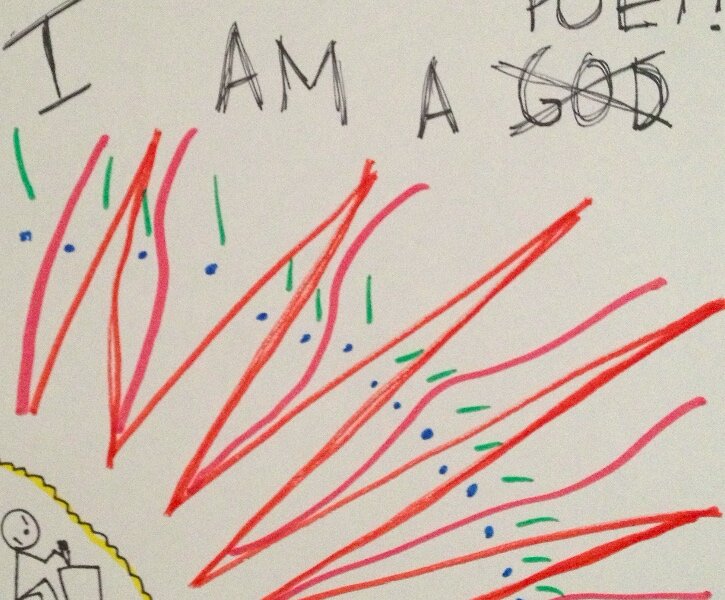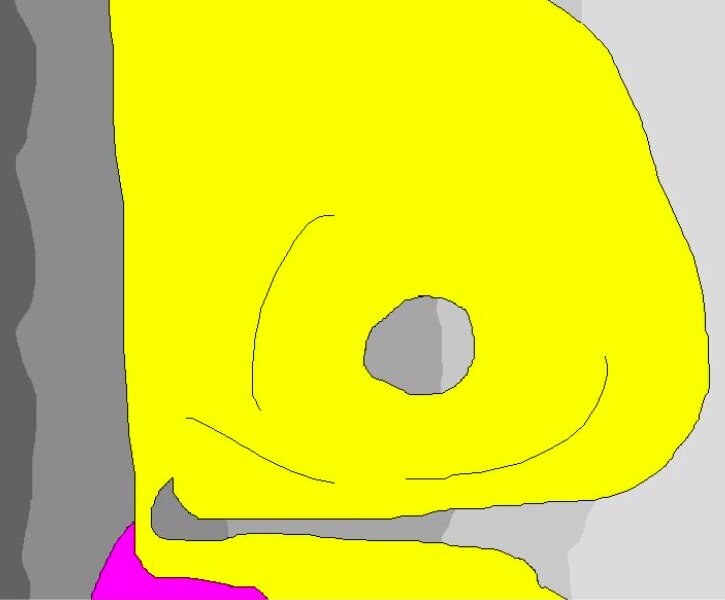It’s brisk with a Dublin-style mist in Chicago, and I’m loving the dampness that collects in my hair as I blare the bejesus out of the newly-leaked Deerhunter album, in my earbuds. Bradford Cox, in his never-ending quest to justify his celibacy through the creation of music so beautifully off-kilter that he doesn’t need anything else, has spirited me through so many angsty moments. And while this moment is so biographically different from all of those, it feels utterly the same.
It feels as though I never ended the long enigma of my loneliness, that I never found a beautiful, brilliant, and supporting lover, and as though I’m still stuck in the same pursuits as Bradford—assuming that sense will come to everything, to all of the dissonance of my sordid life, if I only burrow monomaniacally enough into one aesthetic hole.
Bradford, you see, he was there for me, in all of those moments I felt my agency crumbling under me. Denied over and over by publishers, losing many an ego battle, spurned by countless a vixen, ignored by so many salary-granting employers, living in a remote urban basement, incapable of hiding any of these problems in my pauper appearance, and conflating all of these things into a sense of anomie and existential failure so piercing that I couldn’t puff one puff of marijuana—and I puffed so, so many more—without shaking and crying and believing that none of it could ever change; Bradford, he was there for me in my earbuds. Saying: there is somewhere else, and it is here. There will always be here.
And here it is, still. Still, with my employment and monogamous love and incrementally encouraging literary pursuits, Deerhunter fills for me a void I didn’t even know existed. Dreamers of dreamers, Bradford and his subjugated gang are the only band I still listen to which seems to believe that life can be saved by so many musket-blasts of musical bibliophilia, put to use in the realization of albums so good that every nerd everywhere is put hard to the nails with the task of criticizing them, of not dancing their joyously nerdy dance to them.
And as I escape a group of happily ambling drunks the day after I acquire the album, outside of a Chicago Cubs game, I’m so thrilled to return to my earbuds, and turn off all of the non-Deerhunter world, anew. The hypnotic, lullaby-laden roars within are my only respite from completely losing my shit at Wrigley Field, and as Bradford’s croon threatens to break as his heart most certainly does—it always does—I’m lost in a mix of sublime appreciation, and the rage of a lifetime of despising the Cubs and their culture, and refusing to enter that stadium.
And just as Deerhunter revisits me, I find that I’m incapable of letting go—even with everything going so well. Content to absorb that mist through half of the game, I begin to fold to my history as the drinks go down, and the bodies about Wrigley start to dance their Cubby dance. I rediscover the terms of the chip I acquired onto my shoulder, through the decades of binary opposition my mother’s over-sized, Catholic, south-side family waged, evoking the Cubs in much grander terms than I’ve ever heard the devil mentioned.
The fans surrounding me—particularly one unfortunate fellow, a member of my makeshift crew—shape into demons representing everything I self-righteously hate. The unfortunate fellow tells me my own White Sox (who bathed my heart in triumphant gravy by winning the World Series, when I was nothing but a jumping ball of College Freshman puke and hormones, in 2005) are unloved, that their championship is all but null, and it feels to me like he’s kicking me with his bratty fraternity cleats as I wallow on the ground, loser of a class warfare that was tipped his way before either of us were born. The Cubs can lose and lose and lose, decades more beyond the century that’s passed since their last championship, and he’ll still be part of the smiling, privileged masses, and I still won’t be.
I tell my friends to keep him away from me, that I’ll gladly remove those glasses and grin from his face, that they should be wise enough to keep the two of us away from knives and nails and objects blunter than the shoe I think about taking off, to bludgeon him with. ‘I would love to watch his guts and blood flow,’ I pronounce, ‘He is the absolute worst brand of human,’ I elaborate.
And when I make my false amends with my friends—not that fellow, who should still be wise enough not to be near me—and leave, Bradford is there for me as my pace quickens in the rain, and my breaths elongate in my refuge. If it really is the endless, endless love of a maladjusted audience that he seeks, then I can promise to always find enough self-striking maelstrom to swim in, between the ports of rescue of his miraculous albums.
John Wilmes is a writer and professor in Chicago, and the author of Jad's Dad Milo, available at Mouse House Books.
Read more







